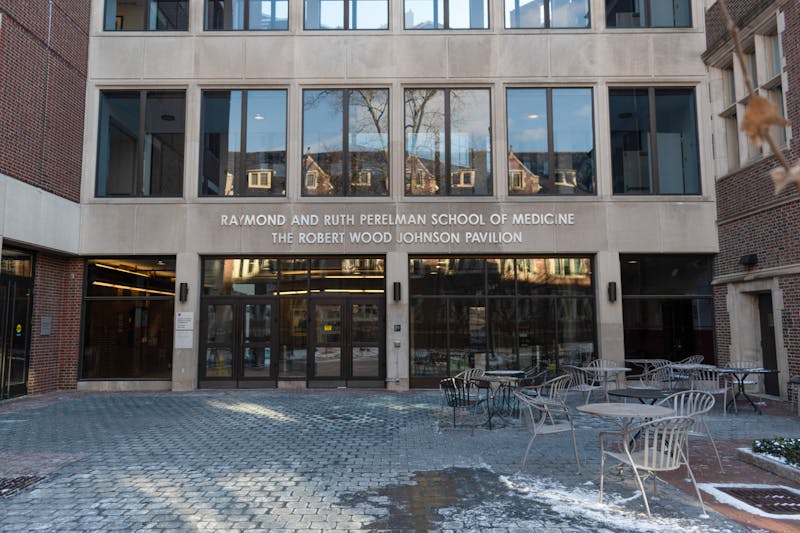Yesterday at Skirkanich Hall, a crowded computer-science class struggled with questions about programming code until Engineering sophomore Isaiah Greene explained the answers.
For Greene, this wasn't a chance to impress his teacher. It was a chance to teach the class, which in this case was comprised of 12 high-school sophomores from Philadelphia's Science Leadership Academy.
Greene is one of six Penn students who teach the class, a "service-learning" venture launched by Penn this semester which offers Penn students a class credit for designing and teaching a computer science curriculum to the high-school students each week.
The class is the product of community outreach efforts at the School of Engineering. It is designed to benefit both the high schoolers and the Penn students involved, said Engineering professor Jean Griffin, who oversees the instruction.
"It's very rare that a high school has a good high-school computer-science curriculum," she explained, noting a high poverty rate in the city of Philadelphia and a recent decrease in interest in computer science at the university level.
For Penn students, the course offers a chance to learn how to teach the ideas they are taught in many of their other classes and to sharpen their own knowledge of computer science.
It offers an opportunity to teach the material differently from how Allison Mishkin, one of the Penn students teaching the class, said she was taught in high school.
Alex Laties, a Penn freshman in the group, echoed those sentiments.
"At my high school, not many kids got the opportunity to understand computer science," he said. "I didn't know what to expect, but it's been a lot of fun."
For the Penn students, though, the class is not without its share of preparation.
While the course gives high schoolers the opportunity to write their own computer programs, the Penn students first had to prepare software they could run them on. And before giving yesterday's lecture to the high schoolers, Greene said he had to prepare and study slides, as well as master the topics to a near-perfect level.
Because of the challenges involved and the fact that the course was only added to the Penn curriculum a week before the start of classes, Griffin said she was surprised to get six Penn students with the necessary prerequisites to sign up.
"One thing that's great is that all the Penn students and the high schoolers elected to do it," she said. "We know they're all interested."
As a new course, though, Griffin noted that Penn officials are still unsure of how far they can take the class and whether it can be expanded in the future to include more high-school students.
"I'd love to grow this thing," she said.
The Daily Pennsylvanian is an independent, student-run newspaper. Please consider making a donation to support the coverage that shapes the University. Your generosity ensures a future of strong journalism at Penn.
DonatePlease note All comments are eligible for publication in The Daily Pennsylvanian.







